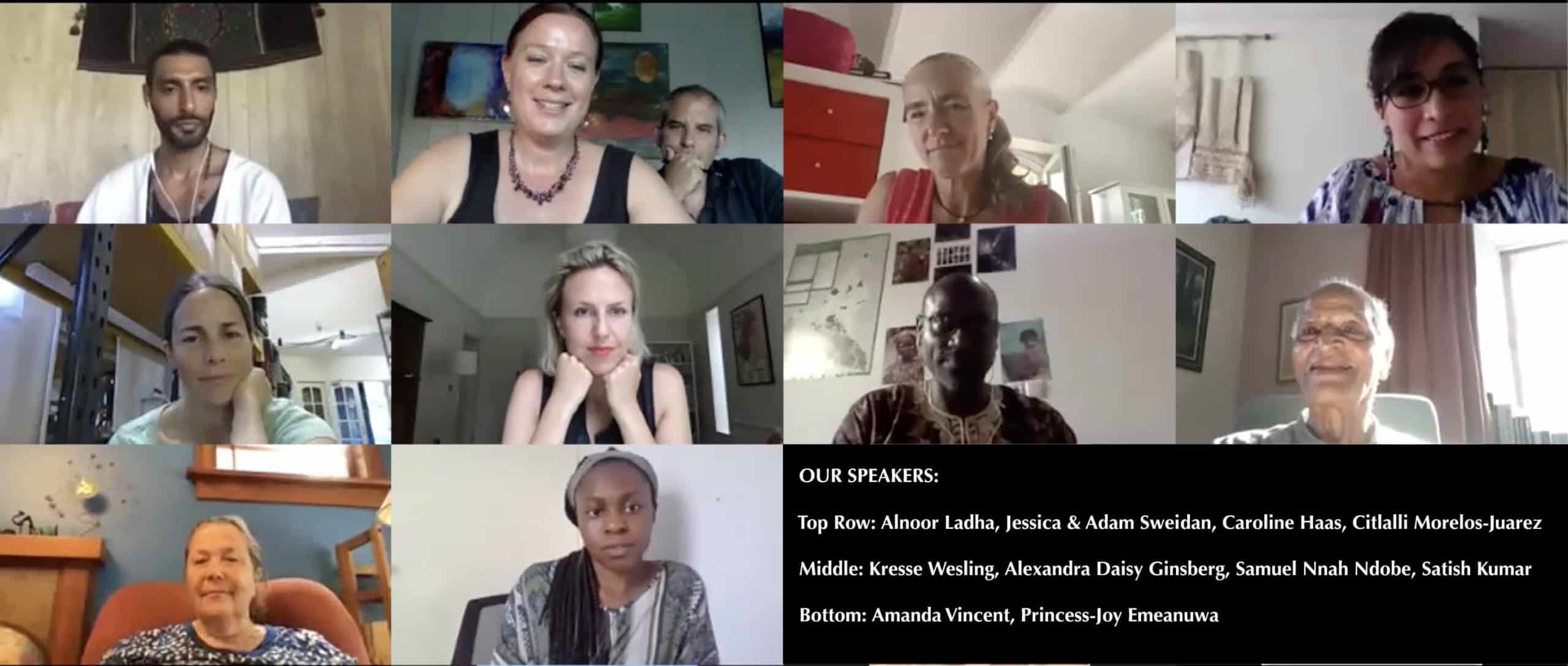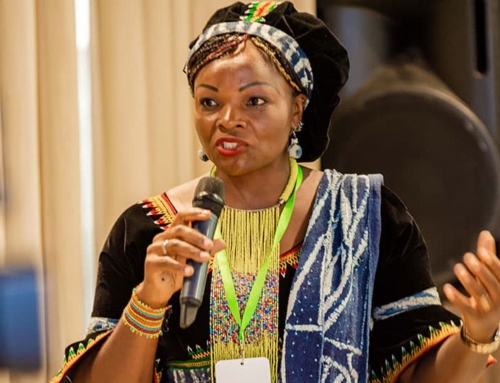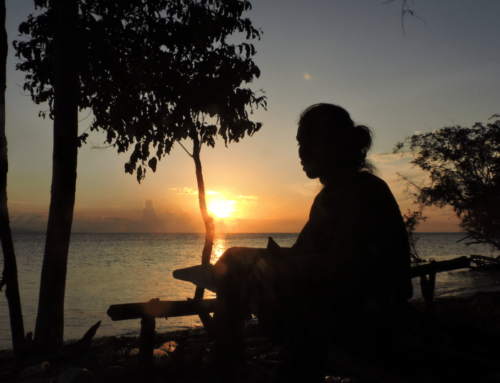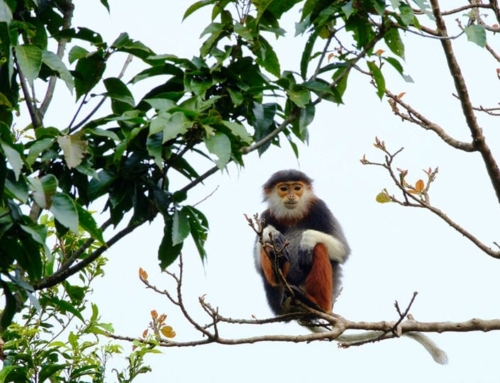The profound impact of the COVID-19 pandemic on our health, economies and societies has stimulated much discussion around what can be done to ‘build back better’ and what a ’new normal’ might look like.
For the second in our Deeper Thinking webinar series, we invited nine speakers from diverse sectors, communities and generations to tell us – in the light of their experience of COVID-19 – what they think we need to leave behind and what we should develop and take forward.
Listen to the second in our Deeper Thinking 2020 webinar series ‘Take it or Leave it: where we go from here, and other (wild) ideas’
What would you like to leave behind?
Some common threads emerged: several of our panel described how COVID-19 has shone a light on humanity’s increasing disconnection from the natural world and underscored the arrogance of our relationship to nature. Satish Kumar put it simply: “Humans are not superior to nature, we can’t conquer nature and it doesn’t exist just for our benefit.”
For Citlalli Morelos-Juarez, the pandemic has been a very loud wake-up call for humanity. “We are not separate from nature: too often we have forgotten our connections to nature.” Citlalli went on to describe how “our toxic relationship with nature is shown in our ignorance of where our food and water come from.”
Kresse Wesling reminded us that disconnection from the natural world does not only apply at the level of the individual – it has also been institutionalised. This lack of connection with the natural world runs through many of our institutions: our education system, the long and complex supply chains behind most of the products we buy.
“We’ve forgotten that we’re a part of nature – instead of in control of nature – and that’s because all of the institutions we’ve built, we’ve built to separate us from nature.” – Kresse Wesling
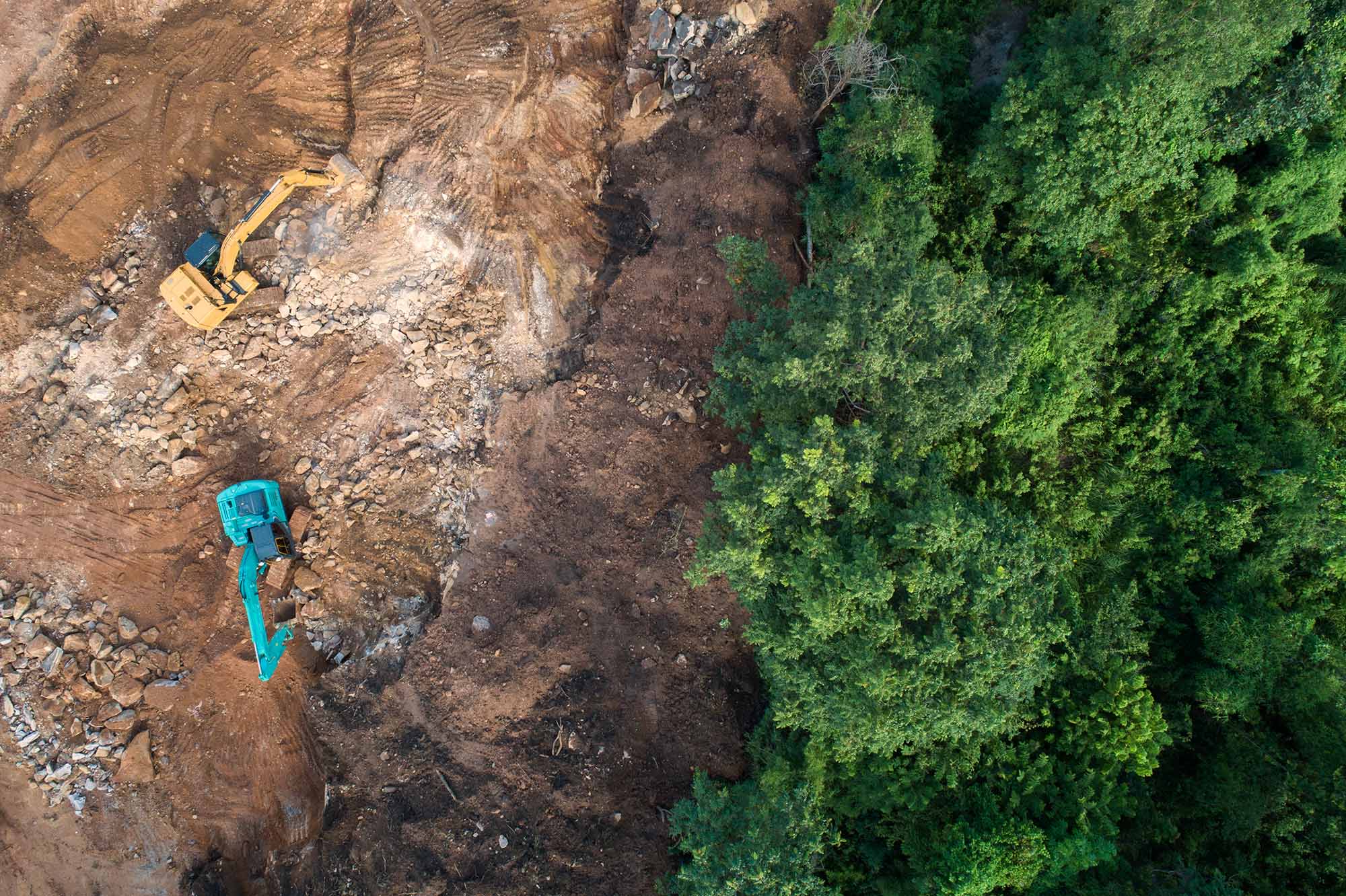
Our disconnection from nature has become institutionalised, with long, opaque supply chains separating us from the impact we are having on the natural world. Image: Shutterstock
Caroline Haas gave a very practical example of something we need to leave behind. “Business travel, when you look at it, is a complete waste of time and resources, and from an environmental point of view it is very detrimental.” While acknowledging the importance of meeting people in person and the potential implications of a reduction in air travel for the industry and jobs, she stressed that it really should not be necessary “at the drop of a hat to fly around the world for an hour long business meeting.”
For Amanda Vincent, the pandemic has again shown our tendency to simply ignore the devastating damage we are doing to our planet, particularly to the ocean. “Among its many ravages, COVID-19 has largely confirmed that we are ignoring the ocean, ocean wildlife and ocean people and with terrible consequences.”
“We just haven’t figured out that balance between exploitation and conservation, between production and sustainability.” – Amanda Vincent
According to Samuel Nnah Ndobe, we will be able to find this balance if start listening to indigenous peoples, custodians of the land. For too long we have ignored the warnings that nature and those that know it best have been giving us. If we fail to listen to indigenous voices, we will continue on down this reckless path.

For too long, we’ve been ignoring what nature, and those that know it best, have been telling us. Image © Chris Scarffe
Alnoor Ladha touched on a similar theme, arguing that “we cannot be strangers to what is happening, we cannot ignore it. We need to leave behind our sense of entitlement.”
“We are entrusted with everything, and entitled to nothing.” – Sufi saying.
For Alnoor, the pandemic is “exposing how deep our sense of entitlement is and (…) the consequences of our actions and our behaviours at a global level.”
Daisy Ginsberg reflected on the diverse range of people on the panel, saying that we cannot continue to view the various crises we are facing as separate issues and that we need more joined-up thinking. “To see social injustice and health and environmental and economic crises as separate is to miss the moment to join everything up.”
Princess-Joy Emeanuwa ended this first part by lamenting the lack of care and attention people give to the local green space around them.
“It’s taken lockdown for people to recognise the importance of nature, especially of using our local green spaces.” – Princess-Joy Emeanuwa
Can this greater appreciation of local environments during lockdown persuade us to invest more of our time, money and care in nature?
What would you like to take forward?
Satish Kumar suggested a three-pronged approach: protest, protect and build. We first need to protest against this arrogant superiority complex we show towards nature. As we protest, we must also protect.
“We have to devote ourselves not just to protecting biodiversity, but also the diversity of culture. We have to protect the beauty of our planet Earth and the beauty of human imagination and human spirit.” – Satish Kumar
And at the same time, we must focus on building “new ways of living in harmony with the natural world, agroecology, permaculture, local economy, renewable energy, new ways of educating people…”
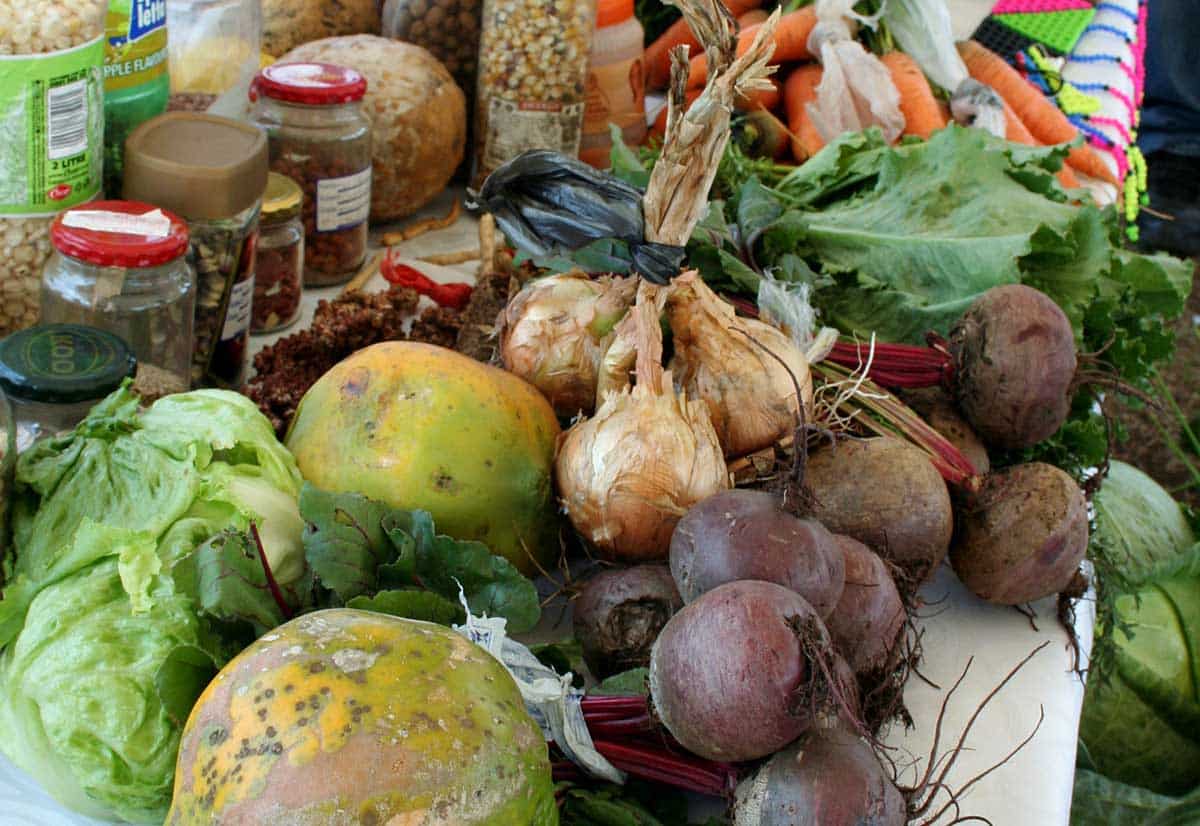
Agroecology can be one way to help build a healthier relationship with nature, or simply understanding more about where our food comes from would be a good start. Image © AgroEcology Fund
Citlalli Morelos-Juarez stressed the importance of reconnecting with nature. “It can be in little steps, like knowing where your food comes from, growing your own food, reconnecting with the rivers and the origin of where your water comes from, getting to know natural areas around you, supporting projects that take care of biodiversity.” Princess-Joy Emeanuwa echoed this sentiment, arguing that we need to appreciate the little bits of nature we have around us, invest in our local natural spaces and just let nature flourish.
For Samuel Nnah Ndobe, we can move towards a better relationship between humanity and the natural world by going back to the knowledge and wisdom of forest peoples, finding out from indigenous elders how they survive and thrive in nature as they have the solutions: “Their way of life is the best way of life that can set this world back to its normal carrying capacity.”

Princess-Joy stressed the importance of noticing and taking care of the nature around us. Image: iStock
Alnoor Lhada spoke of the opportunities of post-growth economics, and about moving from a mindset based on scarcity and extraction to an abundance mindset. He argued that if in the US they are able to print 4 or 5 trillion dollars out of thin air, then “of course we could have a universal basic income, of course we could support indigenous people for the stewardship of their land”. He spoke of the need to move from a culture of domination to a culture of dialogue, an idea echoed by Daisy Ginsberg: “I would argue purely for a world where we actually talk about what we want and who gets to be part of that and then we will discover that that dialogue is crucial.”
Caroline Haas described the new connections we have been able to make during lockdown, and how we are starting to realise the potential of these technologies. “It actually gives us amazing opportunities for children and particularly in tertiary education, to tap into resources from around the world, and learn from other people.” A more utopian idea (she called it wacky) would be to have TWO governments, one long-term government to focus on issues such as infrastructure and renewable technologies, as the current short-term structure is a barrier to long-term thinking and change.
Kresse Wesling stressed the power of institutionalised connections, something she has witnessed and promoted in her own work:
“My business is a founding B-corp and the reason I love that model is because you have to change the articles of association of your business to say that shareholders are not more important than the planet or its people. (…) That completely changes the whole paradigm, because you’re embedding and institutionalising a whole connection, not with shareholders, but with stakeholders.” – Kresse Wesling
From a conservation perspective, the pandemic comes with great risks, but also opportunities. Whilst acknowledging its massive social, economic and health impacts on coastal communities and particularly vulnerable groups of fishers, Amanda Vincent also highlighted the opportunity the pandemic provides to find a better balance between exploitation and sustainability: “We actually have a chance for a reset in some of our fisheries and fishing communities where we try for a better balance of fish production, biodiversity conservation and support for the people who are most intimately involved in providing our food and managing our oceans.”
We would like to thank everyone who participated in our second virtual Deeper Thinking event, and particularly to our speakers for sharing their experiences and wisdom with us. It was a huge privilege for Synchronicity Earth to welcome these nine inspirational speakers to share their thoughts. By providing space for these discussions, we hope to nurture fresh ideas and alternative perspectives that can resonate across different sectors and communities.
We’ll be back with further webinars in our Deeper Thinking Series, starting towards the end of September. To find out more, email us on supporters@synchronicityearth.org and sign up to our newsletter for more details.

